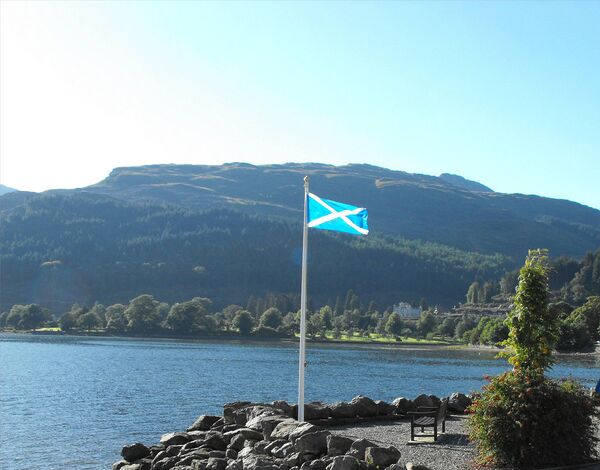EDINBURGH, June 3 (RIA Novosti), Mark Hirst – A former senior British diplomat who negotiated the UK’s entry into the European Commission in the 1970s, the forerunner of the EU, has told RIA Novosti it is not in London’s “material interests” to leave an independent Scotland outside the European Union.
Professor Graham Avery was a senior British civil servant for 40 years and Private Secretary to two former British Ministers.
Avery told RIA Novosti, “My argument is that none of them, none of the 28 member states, least of all London, has a material interest in Scotland leaving the European Union even for a brief time.”
The former British diplomat, who is a Senior Adviser at the European Policy Centre and Honorary Director-General of the European Commission, questioned why a recent publication by Dr Daniel Furby, of the “think tank” Business for a New Europe, (BNE), had not considered the “material interest” each EU member would have in preventing Scottish membership.
Furby’s paper, “Scottish Independence and EU Accession” claims an independent Scotland would face “significant obstacles” to EU membership.
But Avery told RIA Novosti, “The question Mr Furby doesn’t seem to address in his latest publication is this; what are the material interests of the 28 member states?”
Avery pointed out that the latest BNE publication, written by Furby, was a rehash of an earlier document produced by the right wing, London-based group two years ago.
“It’s not terribly new in the sense that [Furby] published something similar a couple of years ago,” Avery told RIA Novosti.
“Anyone with experience of the European Union knows that the decision to allow Scotland to become a full EU member will be a political decision,” Avery said.
“My own view is that since there is no provision in the EU Treaty for the scenario we are looking at, which is one member state dividing into two parts, both of which want to remain part of the EU,” Avery said.
“It is a bit of a distraction to look at other parts of the Treaty that deal with, for example, how to join the EU if you are not a member or how to leave the EU if you are a member,” Avery added.
Avery told RIA Novosti that although rules and procedures would have to be followed, ultimately political expediency and the individual national interest of EU members will dictate the outcome.
“It is obvious that at least one member state has a political interest in this story because Spain is confronted by the Catalans and the Basques,” Avery said. “Nothing I have read from Spain suggests to me that Spain wants Scotland to stay outside the EU.”
“An independent Scotland would have most of the European fisheries resources, so if you are Spanish (with a large fishing fleet) you don’t want Scotland staying outside,” Avery told RIA Novosti.
Avery told RIA Novosti that Spain would seek a reassurance that Scottish independence and subsequent membership of the EU, would not act as a precedent for Catalonia.
“In the case of Catalonia, as things stand at present, Madrid insists [a referendum on independence] wouldn’t be constitutional and that seems to me the key assurance as far as Spain is concerned,” Avery added.
Scots go to the polls on 18 September and will be asked one question “Should Scotland be an independent country?”


